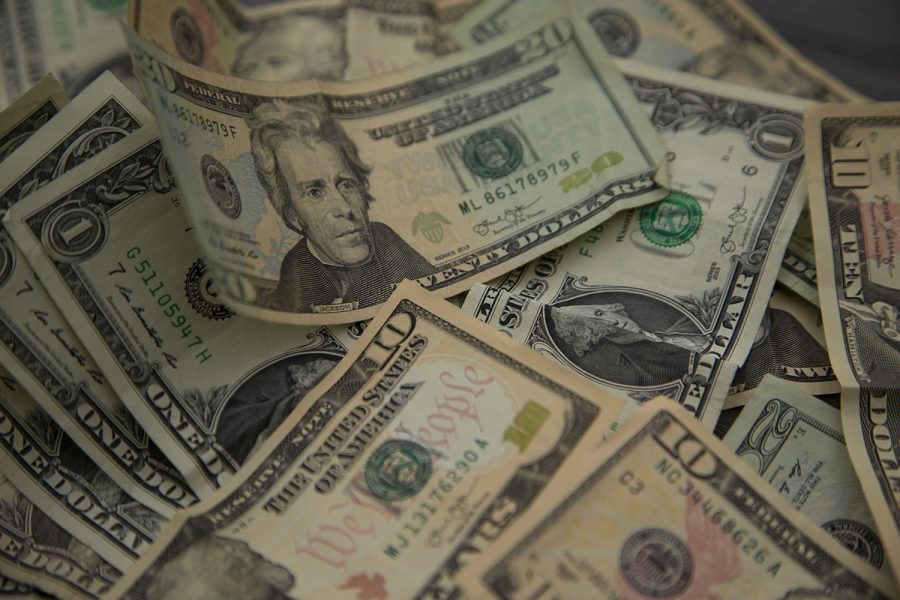Call me a socialist, but it is truly time to expunge all billionaires. There are now 735 billionaires in the U.S. and 2,600 billionaires globally as of 2024.
Iowa has one billionaire: agriculture mogul Harry Stine, who made Forbes’ list of the 400 richest Americans in 2023. Stine was slated at No. 76 for his net worth of $9.7 billion.
Stine made his fortune from his seed company, Stine Seed, and from licensing crop genetics to other massive agriculture companies.
One of the biggest issues that surround the problem with billionaires is their contributions to our declining planet. According to an article from Oxfam, billionaires and their ever-growing corporations are to blame for emitting a massive quantity of carbon into the atmosphere, at a rate of 1 million times more than an average person.
As stated in the Oxfam article, “125 of the world’s richest billionaires invest so much money in polluting industries that they are responsible for emitting an average of 3 million carbon tons a year.”
If billionaires continue to invest in polluting industries, like fossil fuels, the longer they will stay around and hurt our planet.
Stine is partially an anomaly to this issue, as he invests his time and money into the Trees Forever Foundation, a group dedicated to the conservation of the environment, for which Stine serves on the board. If more billionaires were to use their money for the good of everyone else, our planet and more people would benefit.
Homelessness, another widespread problem in the world, could also be swiftly eliminated by billionaires. Just taxing 2percent of the two richest billionaires’ wealth, Jeff Bezos and Bill Gates, would end homelessness as we know it.
Many would argue that billionaires like Warren Buffett and Gates have vowed to give a majority of their money to charity after death, but that is just two billionaires among 700 and counting who do not have any similar charitable intentions. When these billionaires die, their family will inherit their money and the cycle will simply continue.
According to The Global Citizen, the top six things billionaires keep spending their money on are private islands and land, private planes and mega yachts, trips to space, pursuing eternity through cryogenics, and — not surprisingly — tax havens.
To really show you how much billionaires love to avoid paying taxes, according to ProPublica, “The top 25 wealthiest Americans got $401 billion richer from 2014 to 2018, but paid just $13.6 billion in federal income taxes,” or a “true tax rate” of just 3.4 percent.
To compare, Oxfam adds that the average American paid a 13 percent tax rate from 2010 to 2018. The highest average personal income in the U.S. from 2010-18 was in 2018 at $38,960. The lowest was in 2012 at $33,510.
Billionaires love to hire an abundance of lawyers to avoid taxes, but this needs to stop. There is no reason in the world that a billionaire should pay less taxes than a teacher. There is no reason in the world to have that much money in the first place, period.
According to Statista, “In the third quarter of 2023, 66.6 percent of the total wealth in the United States was owned by the top 10 percent of earners.”
This creates massive income inequality because most billionaires hoard their money and don’t reinvest it into the economy. Income inequality can actually lead to not only extreme poverty but also decreased economic growth.
Bernie Sanders has been proposing a ban on billionaires for a while now and has very strong points as to why. What Sanders points out, according to Oxfam, is that wages for most Americans are lower than 50 years ago and that 60 percent of American workers are living paycheck-to-paycheck.
While we continue to settle for the uber-wealthy, poverty is only getting higher. Time Magazine points out that in 2022, 37.9 million people lived in poverty, 12.4 percent of Americans. This was an increase from 7.4 percent in 2021. Time also mentions that child poverty more than doubled in 2022 from 5.4 percent to 12.4 percent.
When there is more equality and wealth for all, our economy will only grow, and so will American society



